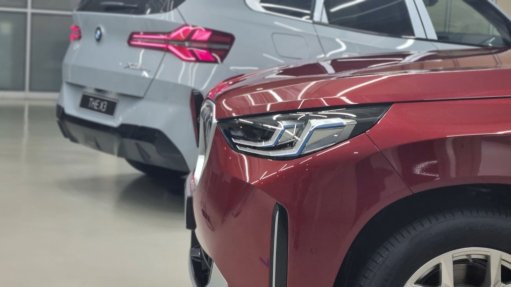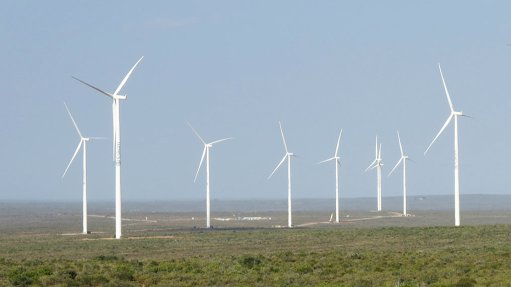We need to fix our education system
Why is there a tendency to believe that the solutions for all our present economic ills lie in the present? Could this tendency be attributable to Albert Einstein’s assessment: “We cannot solve our problems with the same thinking we used when we created them”? But we can still learn from the past. There are universal laws that, though they might seem to be unpopular, withstand the test of time.
Take what is highlighted in an article published in The Washington Post on May 10, 2016, which was titled ‘The one thing rich parents do for their kids that makes all the difference’. While contemplating the message conveyed by this headline, read past the word ‘rich’. Yes, I appreciate the irony that the newspaper is owned by Nash Holdings, which is a holding company established by Jeff Bezos, the Amazon founder and the richest person in the world.
There is one thing that parents do that provides their children with a lasting and sustained competitive advantage – it is education.
When using Google to search for ‘South Africa’s education system’, it returns the December 2012 academic article by Nelda Mouton, which addresses the ‘Critical challenges of the South African school system’. If this is too old for your liking, Google offers a suggestion – ‘Search for: Why is the South African education system failing?’ If you do, the search returns an article by PDBY – the official student newspaper of the University of Pretoria (one of my three alma maters). Published on April 9, 2019, and titled ‘South Africa’s failing education system’, it quotes an article published in The Economist in January 2019, which was titled ‘South Africa has one of the world’s worst education systems’. So, how does one reverse this trend? It is a trend, for if you search for ‘South Africa has one of the world’s worst education systems’, it returns recent articles from January 6, 2017; January 30, 2018; and April 9, 2019.
There are many figures that can be cited to highlight South Africa’s education crisis, but none summarise the situation better than an article published in The Economist in 2018. It states: “Only 37% of children starting school go on to pass the matriculation exam – out of those 37%, only 4% earn a degree.” So, what should be done, other than talking about the crisis or establishing a commission?
As to what to do, the PDBY article states: “In recent years, the Department of Basic Education has tried to make things easier for students by lowering pass marks in subjects that are holding students back. An example is their recent decision to pass students who pass all their subjects, except maths, but acquire a mark of at least 20%. The department has also decided to align the pass marks, so that the Grade 7 to 9 pass marks reflect those of Grades 10 to 12, namely that a pass mark of 30% in at least four subjects and 40% for the remaining four subjects (including home language).”
Surely, this cannot be the solution, particularly considering that education is the “highest domestic priority and the single greatest long-term challenge facing South Africa, receiving the greatest share of government spending”. It accounts for 5% of gross domestic product.
So, what should we do without throwing money at the problem? A World Economic Forum article that was published more than five years ago (on June 8, 2015) offers ‘3 Steps to Fix Education in Africa’. First, there needs to be a focus on the unglamorous area of vocational training. Second, African schools must harness new technology for distance live-stream learning. Third, the energies of the private sector should be set free to assist public education systems. In other words, we need to create innovative private schools free from direct Education Ministry micromanagement.
What has happened to the South African education system? Standards became grades, which became lower grades.
Article Enquiry
Email Article
Save Article
Feedback
To advertise email advertising@creamermedia.co.za or click here
Press Office
Announcements
What's On
Subscribe to improve your user experience...
Option 1 (equivalent of R125 a month):
Receive a weekly copy of Creamer Media's Engineering News & Mining Weekly magazine
(print copy for those in South Africa and e-magazine for those outside of South Africa)
Receive daily email newsletters
Access to full search results
Access archive of magazine back copies
Access to Projects in Progress
Access to ONE Research Report of your choice in PDF format
Option 2 (equivalent of R375 a month):
All benefits from Option 1
PLUS
Access to Creamer Media's Research Channel Africa for ALL Research Reports, in PDF format, on various industrial and mining sectors
including Electricity; Water; Energy Transition; Hydrogen; Roads, Rail and Ports; Coal; Gold; Platinum; Battery Metals; etc.
Already a subscriber?
Forgotten your password?
Receive weekly copy of Creamer Media's Engineering News & Mining Weekly magazine (print copy for those in South Africa and e-magazine for those outside of South Africa)
➕
Recieve daily email newsletters
➕
Access to full search results
➕
Access archive of magazine back copies
➕
Access to Projects in Progress
➕
Access to ONE Research Report of your choice in PDF format
RESEARCH CHANNEL AFRICA
R4500 (equivalent of R375 a month)
SUBSCRIBEAll benefits from Option 1
➕
Access to Creamer Media's Research Channel Africa for ALL Research Reports on various industrial and mining sectors, in PDF format, including on:
Electricity
➕
Water
➕
Energy Transition
➕
Hydrogen
➕
Roads, Rail and Ports
➕
Coal
➕
Gold
➕
Platinum
➕
Battery Metals
➕
etc.
Receive all benefits from Option 1 or Option 2 delivered to numerous people at your company
➕
Multiple User names and Passwords for simultaneous log-ins
➕
Intranet integration access to all in your organisation

















